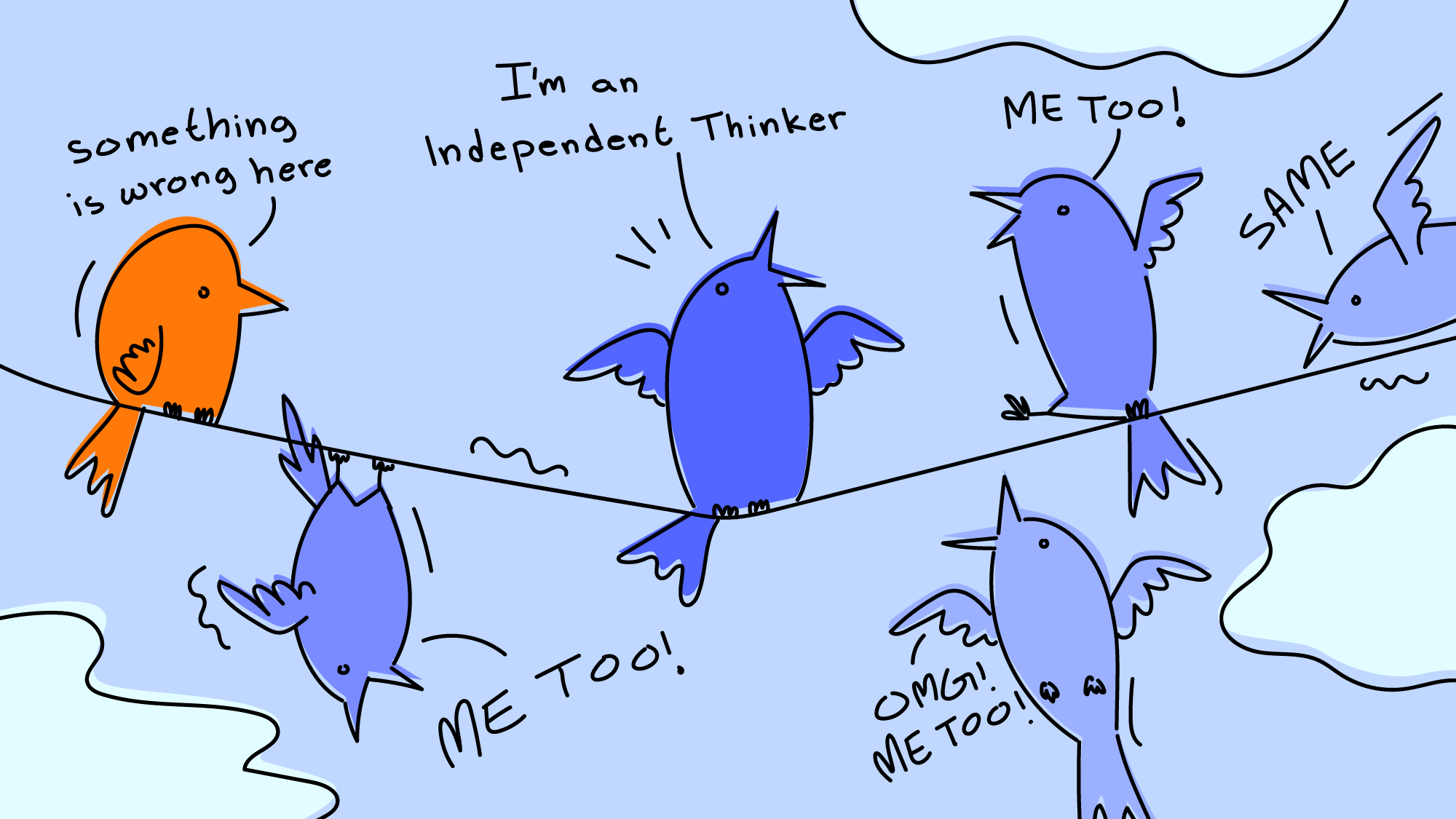Irish playwright George Bernard Shaw used to say: “Two percent of people think; three percent of people think they think; and ninety-five percent of people would rather die than think.” Undoubtedly, he put himself in the first category, but even he had to admit that he was not thinking all the time. “Few people think more than two or three times a year; I have made an international reputation for myself by thinking once or twice a week.”
American poet Archibald MacLeish believed that we stop being human once we do not think: “The only thing about a man that is a man … is his mind. Everything else you can find in a pig or a horse.” MacLeish experienced McCarthyism, a period of political repression and persecution of left-wing individuals in the United States. It was a campaign led by Republican Senator Joseph McCarthy spreading fear of communist and Soviet influence on American institutions and of Soviet espionage in the United States during the late 1940s through the 1950s. In October 1952 Joseph McCarthy claimed that MacLeish had belonged to more Communist front organizations than any man he had investigated. Despite coming under increasing pressure, MacLeish bravely defended his left-wing friends during the McCarthyism era.
He warned that McCarthyism was destroying democracy in the United States: “Once you permit those who are convinced of their own superior rightness to censor and silence and suppress those who hold contrary opinions, just at that moment the citadel has been surrendered.”
MacLeish concluded that “Democracy is never a thing done. Democracy is always something that a nation must be doing.” At the same time that MacLeish was denouncing the persecution of dissenters in the United States “who had resigned from the herd to think for themselves”, Polish writer Czeslaw Milosz was criticizing similar totalitarian thinking in the Soviet bloc. In ‘The Captive Mind’ written in 1951 in exile from Poland he says: “… the power of attraction exerted by totalitarian thinking, whether of the left or of the right, does not belong to the past in the world; on the contrary, it seems to be on the increase.” After living in the West, he also understood that totalitarian thinking is found in all political systems that try in different ways to make people conform, follow the line and not question the prevailing orthodoxy.
To overcome “cowardly and inconclusive thinking” and the fear of thinking for ourselves, Milosz advocated “a proper attitude of doubt” to resist “a monolithic conformity. Everything will be shaped by the Centre, though individual countries will retain a few local ornaments in the way of folklore.” He was against top-down hegemonic blocs that wipe out the diverse realities of nation states “in which differing languages and differing cultures would have equal status … (against blocs) where independent states become “no more than museum pieces.”
Increasingly we are sinking into the quicksand of totalitarian thinking imposed by the warmongering EU-NATO bloc. Anyone questioning the present militaristic direction being taken and the abandoning of diplomacy to build sensible relations with the rest of the world including Russia and China is accused of being a puppet of the enemy.
We are all expected to obey orders like the British soldiers in the Battle of Balaclava, during the Crimean War on 25 October 1854. Lord Tennyson describes their blind obedience in ‘The Charge of the Light Brigade’:
“Theirs not to reason why,
Theirs but to do and die.”
Epidemic of group think
Both Walter Lipmann and Benjamin Franklin warn us against the sterility of group think where we succumb to the pressure to conform, censor ourselves and give up thinking for ourselves altogether. Lipmann says: “Where all think alike, no one thinks very much.” Benjamin Franklin similarly states: “If everyone is thinking alike, then no one is thinking.”
Are we ready to think? Are we ready to think courageously? Are we ready to think long term, where long term does not mean a series of short terms? Are we ready to challenge the established orthodoxy?
An epidemic of groupthink has spread across the EU-NATO bloc where no one is expected to question the decisions of the leaders, however irrational, illogical, suicidal and short sighted they might be. The leadership elite still cling to the illusion that they are the centre of the world and the rest of the countries revolve around them even those which have overtaken them economically, technologically and militarily.
They suffer from the Imperial Delusion Syndrome (IDS), unable to live with others unless they dominate them. They cannot bear the reality of living in a totally different world where they cannot control what other countries do.
When the Soviet Union collapsed and the Warsaw Pact was dismantled, instead of dismantling NATO and building a Common European Home from Portugal to Russia through a cooperative security architecture, President Bill Clinton’s US leadership imposed its will and its interests on the rest of the unipolar world, and tried to turn the EU into an appendage of NATO.
At first the predecessors of today’s EU leadership were reluctant to follow sheepishly, but today’s leaders have allowed the EU to become a vassal of the US even though they talked of wanting strategic autonomy and European sovereignty. Now they are in a deep crisis as the present US leadership is telling them to grow up and look after themselves.
After the Second World War, that is in the last 80 years, we used to have statesmen who managed to find ways of ensuring the peaceful co-existence between different rival blocs in Europe. The predecessors of today’s leaders developed detente, the nurturing of a collective European security architecture through the Organization for Cooperation and Security in Europe where all safeguard their security without threatening the security of others. Instead of standing on the shoulders of these giants, and seeing further than them, today’s leaders are pygmies indulging in rearguard action that is hastening the decline of Europe.
Times of Malta 23 May 2025




